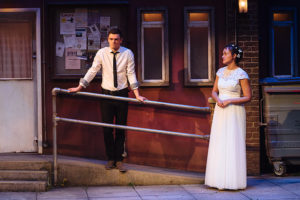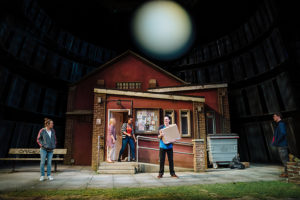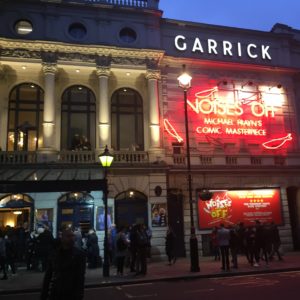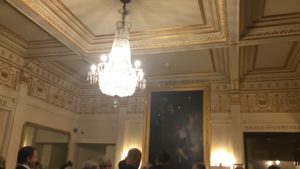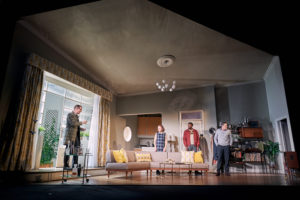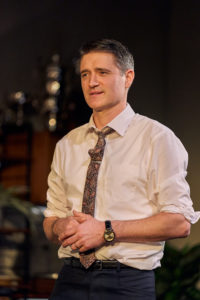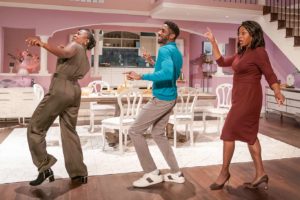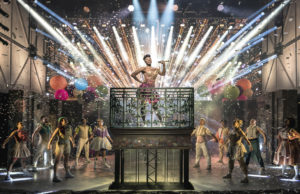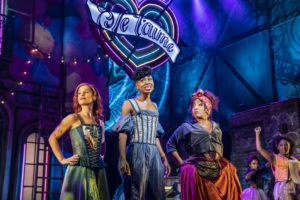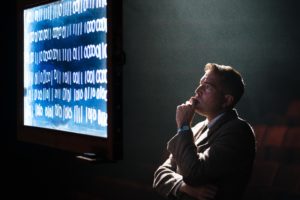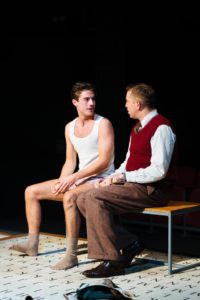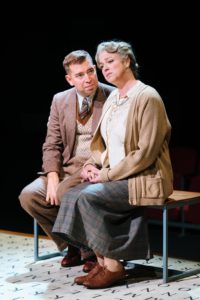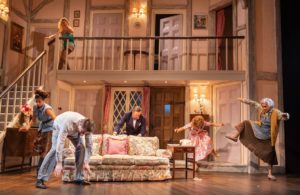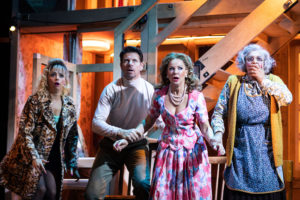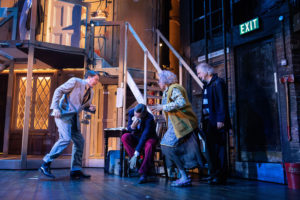An entertaining evening full of fun and frightening facts but light on drama ★★★
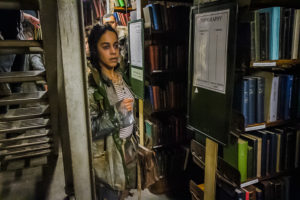
The Time Machine offers an opportunity to tour the magnificent London Library. This 180-year-old private lending library is housed in a grade II listed building in Mayfair. It has had among its members Alfred Lord Tennyson, Charles Dickens, Charles Darwin, Virginia Woolf, George Bernard Shaw, Agatha Christie and of course HG Wells.
It’s his novel The Time Machine that inspired Creation Theatre’s entertainment. The audience is restricted to groups of twenty. We meet a time traveller in a lobby area. Ours is played by Leda Douglas. She’s charming towards us but she’s breathless and clearly on edge.
She takes us on a journey to various points in the future represented by the different rooms in the library. We don’t go many years ahead but far enough to be in the dystopian world that has terrified her.
Although it purports to be the true story of secretive time travel that has been going on for about forty years, The Time Machine is really a warning that what we do now affects the future, that our polluting the planet and our scientific tinkering is going to get us in trouble. Or should I say even more trouble?
Interestingly the show which was written last October predicts the current virus epidemic. Did they go back in time and alter the script I wonder?
Anyway, along the way, we meet an amusing computer (Graeme Rose) which is clearly where Alexa and Siri are heading if the backchat is anything to go by. We encounter a scared scientist played by Sarah Edwardson. And finally a chat show host played with gusto by Funlola Olufunwa. Other members of the creative team were Ryan Dawson Laight (designer) and Matt Eaton (Sound Designer).
The play seems to stick the blame for our apocalyptic future on rich capitalists and corporate greed rather than humanity in general. Any way you look at it, the message is bleak and there’s little hope.
This play about time is a timely warning
That doesn’t mean that there isn’t a lot of fun to be had in Jonathan Holloway’s witty script. This mainly stems from the notion that once people go back in time, they mess around with the future and ‘every effort might be rendered redundant at any second’. So familiar names are thrown about in totally unfamiliar contexts. Oliver Hardy marries Virginia Woolf and invents time travel. Events are not quite as we remember them: I’m pretty sure the first man on the moon wasn’t Japanese.
There is also a lot of delight taken in exploring the mind-blowing nature of time. Are there multiple universes? Is time a loop?
Amusing as the story of time travel was and frightening as the information was about the way the future is likely to turn out was too, the show’s weakness is that it promises more than it delivers.
We’re told by our guide to be careful, to stick to the walls because of the dangers we may encounter. People are liable to shift shape, or their socks might change colour, or the dreaded Morlocks might appear from under the ground. But actually, none of this happens.
I wasn’t expecting a Disney ride or Doctor Who effects but the odd scary or simply dramatic happening might have been expected following the introduction.
Not enough drama in this crisis
Here are a couple of examples. In order to travel in time, we hold up our arms and our guide holds a briefcase and says “Zoom!” I guess time travel could be as prosaic as that and maybe director Natasha Rickman wanted to avoid the clichés of strobe lighting and loud electronic noise but it did feel a bit flat.

On one occasion, we arrived in a book-lined room with leather armchairs, where we were told about the first time trip. It happened in the basement of Studio 54 New York to the soundtrack of Donna Summers’ I Feel Love. There was talk of the music being turned up and a prospect of disco dancing but, no, we stayed seated in our lovely leather armchairs.
So, although we’re told that the world has been turned upside down and inside out by the constant changing caused by people travelling back in time, nothing ever happens physically to disconcert us.
What is as disconcerting and frightening as a horror film are the many startling facts about the past, present and likely future. I assume these are accurate since The Wellcome Centre for Ethics And Humanities was involved in the production. In fact, there is the odd moment when it seems more like a lecture than a play.
Even if the production seems determined not to make a drama out of a crisis, The Time Machine offers an entertaining evening as well as being a timely wake-up call. And the setting is amazing.
The Time Machine can be seen at The London Library until 5 April 2020 and in summer 2020 at The Museum Of Natural History, Oxford. For more information about The Time Machine, visit www.creationtheatre.co.uk/whats-on/time-machine/
Click here to watch the video of this review on the YouTube channel One Minute Theatre Reviews
Paul Seven Lewis was given review tickets.
